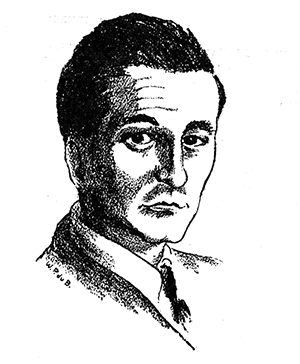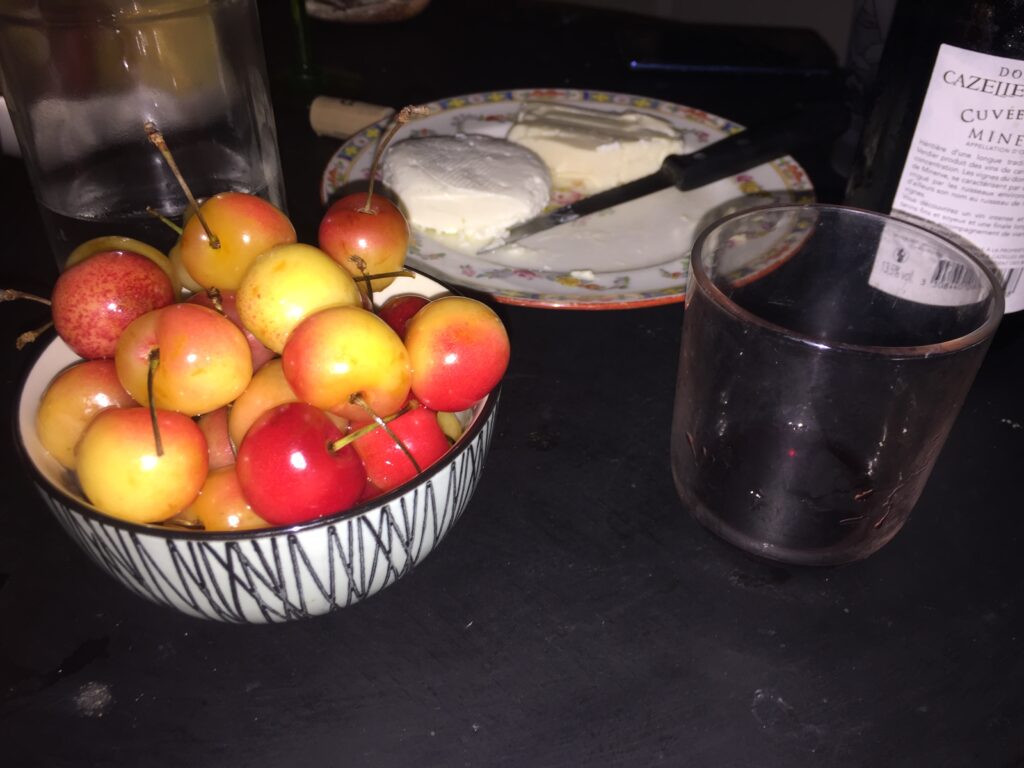Issue 5, Spring 1954
 William Styron, 1954.
William Styron, 1954.
William Styron is the first of the ‘young writers’ to be interviewed by this magazine. He was born 28 years ago in Newport News, Virginia, a section he grew up in and which provided the locale for his first novel—Lie Down in Darkness. This novel, published three years ago, won Styron immediate standing about the best of contemporary writers, and besides critical acclaim gained him the Prix de Rome for Literature.
He was interviewed in Paris, in early autumn, at Patrick’s, a café on the boulevard Montparnasse, which has little to distinguish it from its neighbors—the Dome, the Rotonde, Le Chapelain—except a faintly better brand of coffee. Across the boulevard from the café and its sidewalk tables, a red poster portrays a skeletal family. They are behind bars, and the caption reads: Take your vacation in happy Russia! The lower part of the poster has been ripped and scarred and plastered with stickers shouting: Les Américans en Amérique! U.S. go home! An adjoining poster advertises carbonated water. Perrier! It sings. L’Eau qui fait pschitt! The sun reflects strongly off their vivid colors, and Styron, shading his eyes, peers down into his coffee. He is a young man of good appearance, though not this afternoon; he is a little paler than is healthy in this quiet hour when the denizens of the quarter lie hiding, their weak night eyes insulted by the light.
INTERVIEWER
You were about to tell us when you started to write.
WILLIAM STYRON
What? Oh, yes. Write. I figure I must have been about thirteen. I wrote an imitation Conrad thing, “Typhoon and the Tor Bay” it was called, you know, a ship’s hold swarming with crazy Chinks. I think I had some sharks in there too. I gave it the full treatment.
INTERVIEWER
And how did you happen to start? That is, why did you want to write?
STYRON
I wish I knew. I wanted to express myself, I guess. But after “Typhoon and the Tor Bay” I didn’t give writing another thought until I went to Duke University and landed in a creative writing course under William Blackburn. He was the one who got me started.
INTERVIEWER
What value has the creative writing course for young writers?
STYRON
It gives them a start, I suppose. But it can be an awful waste of time. Look at those people who go back year after year to summer writers’ conferences, you get so you can pick them out a mile away. A writing course can only give you a start, and help a little. It can’t teach writing. The professor should weed out the good from the bad, cull them like a farmer, and not encourage the ones who haven’t got something. At one school I know in New York, which has a lot of writing courses, there are a couple of teachers who moon in the most disgusting way over the poorest, most talentless writers, giving false hope where there shouldn’t be any hope at all. Regularly they put out dreary little anthologies, the quality of which would chill your blood. It’s a ruinous business, a waste of paper and time, and such teachers should be abolished.
INTERVIEWER
The average teacher can’t teach anything about technique or style?
STYRON
Well, he can teach you something in matters of technique. You know—don’t tell a story from two points of view and that sort of thing. But I don’t think even the most conscientious and astute teachers can teach anything about style. Style comes only after long, hard practice and writing.
INTERVIEWER
Do you enjoy writing?
STYRON
I certainly don’t. I get a fine, warm feeling when I’m doing well, but that pleasure is pretty much negated by the pain of getting started each day. Let’s face it, writing is hell.
INTERVIEWER
How many pages do you turn out each day?
STYRON
When I’m writing steadily—that is, when I’m involved in a project that I’m really interested in, one of those rare pieces that has a foreseeable end—I average two-and-a-half or three pages a day, longhand on yellow sheets. I spend about five hours at it, of which very little is spent actually writing. I try to get a feeling of what’s going on in the story before I put it down on paper, but actually most of this breaking-in period is one long, fantastic daydream, in which I think about anything but the work at hand. I can’t turn out slews of stuff each day. I wish I could. I seem to have some neurotic need to perfect each paragraph—each sentence, even—as I go along.
INTERVIEWER
And what time of the day do you find best for working?
STYRON
The afternoon. I like to stay up late at night and get drunk and sleep late. I wish I could break the habit but I can’t. The afternoon is the only time I have left and I try to use it to the best advantage, with a hangover.
INTERVIEWER
Do you use a notebook?
STYRON
No, I don’t feel the need for it. I’ve tried, but it does no good, since I’ve never used what I’ve written down. I think the use of a notebook depends upon the individual.
INTERVIEWER
Do you find you need seclusion?
STYRON
I find it’s difficult to write in complete isolation. I think it would be hard for me on a South Sea island or in the Maine woods. I like company and entertainment, people around. The actual process of writing, though, demands complete, noiseless privacy, without even music; a baby howling two blocks away will drive me nuts.



